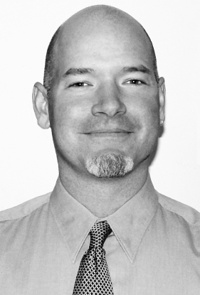
(English Program Office)
There once was a farmer who had two very intelligent and curious daughters who liked to ask many questions. He was troubled, however, because he could not answer all of their questions. Therefore, he decided one summer to send them to live with a wise man on a mountain who surely could answer all of their countless questions and thereby further their educations. So it was that the girls came to live on the scenic mountain and were very excited to learn that unlike their father, the wise man who lived there could indeed answer all of their questions no matter what the topic.
However, the girls gradually became frustrated precisely because the wise man could answer any of their questions easily and without hesitation. After weeks of feeling depressed from always having their questions answered so effortlessly, one of the daughters came up with a question that not even the wise man could answer. Her plan as she told her sister was to hold one of the beautiful blue butterflies on the mountain within her cupped hands and then to stand before the wise man and ask him if her butterfly was alive or dead. If the wise man were to say that it was dead, she would open her hands and let it flutter up into the air. If he were to say that it was alive, she would then gently but firmly squeeze as she opened her hands to reveal the dead butterfly. In either case, the wise man would be proven wrong. Her sister was overjoyed with the plan and the two giggled with delight. They quickly gathered a butterfly and scampered up to the wise man meditating beneath a eucalyptus tree. The daughter with cupped hands boldly told the wise man that there was a butterfly in her hands. She then asked him whether it was dead or alive, to which the wise man simply replied, “It all depends on you; it is in your hands.”
This famous parable is meant to teach us that everything in our lives is ultimately determined by our own attitudes and the choices that we make. Similarly, Viktor Frankl in his famous book, “Man’s Search for Meaning” (1946), conveyed essentially the same message by pointing out the crucial difference between liberty and freedom in suffering. He affirmed that our liberty can be taken away – that is, we can be made to suffer terrible circumstances that are beyond our control – but it is always our choice, our freedom, to decide what our attitude will be in that or any other situation. Frankl (a Jewish doctor who survived four Nazi concentration camps) illustrated this important distinction by recalling how some of his fellow prisoners sometimes walked around within the confines of their huts cheering up others with a kind word or by giving away their precious bread crumbs to those in despair. Some condemned prisoners even walked with their heads held high into the gas chambers. Frankl’s point was that how you choose to feel and act in any situation is entirely up to you even in the direst circumstances. That is why he believed that having a sense of personal responsibility in any situation was and is the essence of a meaningful life.
* Professor Thomas E. Webster has been teaching in Korea on and off since 1994 including five years in the English Program Office (EPO) at Ewha. He has masters’ degrees in language teaching and photography and is currently writing his Ph. D dissertation on the use of technology in education.

